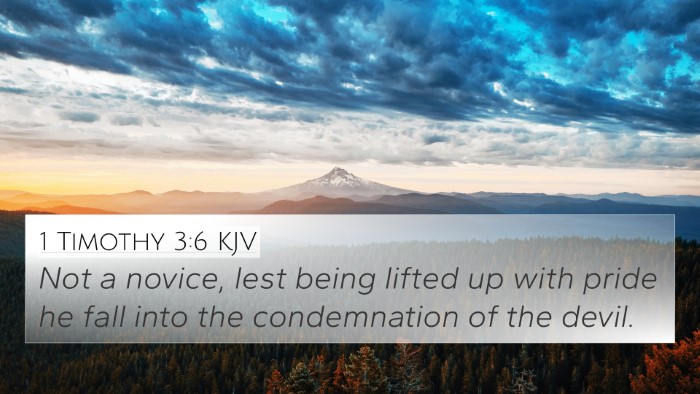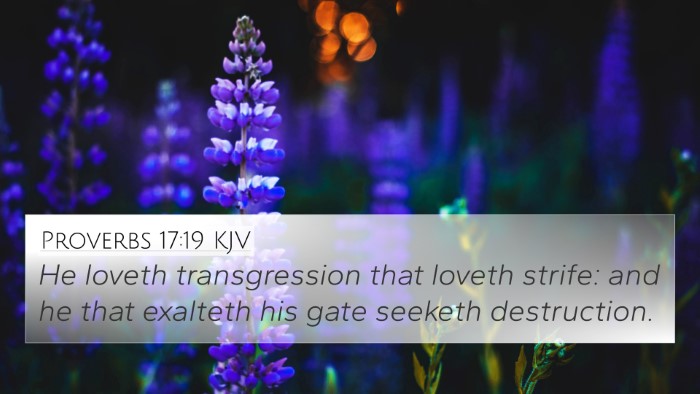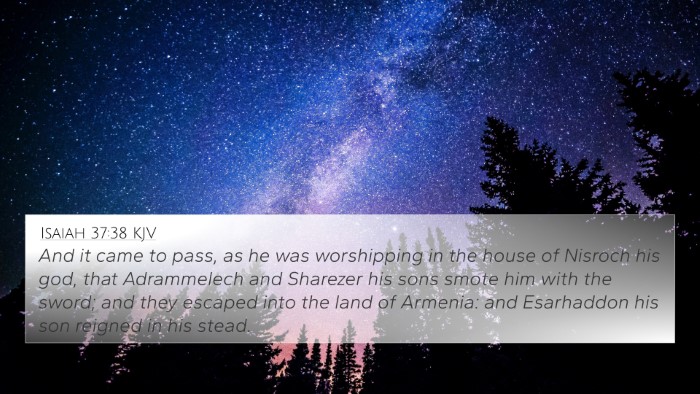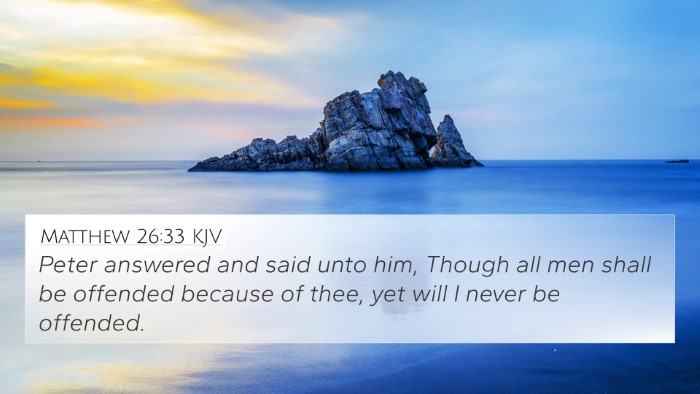Understanding Proverbs 16:18
Proverbs 16:18 states, "Pride goes before destruction, and a haughty spirit before a fall". This verse serves as a poignant reminder of the dangers of pride and arrogance.
Commentary Insights
Matthew Henry’s Commentary
Matthew Henry emphasizes that pride is not only a sin but the root of many other faults. He explains that it often leads individuals to overestimate their own importance, resulting in their downfall. Henry quotes scripture to illustrate that humility is a virtue that leads to honor, while excess pride invariably leads to destruction.
Albert Barnes’ Notes
Albert Barnes points out that this verse illustrates a fundamental principle in human behavior. He notes that those who harbor pride often become blind to their vulnerabilities, leading them to ignore warnings that would steer them away from danger. Barnes underscores that haughtiness breeds neglect and blindness to consequences.
Adam Clarke’s Commentary
Adam Clarke explains that the verse serves as a moral maxim indicating that pride always leads to some form of ruin, either personal or societal. Clarke examines historical examples where leaders' pride preceded their downfall, reinforcing the folly of self-exaltation. He encourages humility, urging readers to acknowledge their reliance on God to avoid the pitfalls that pride creates.
Cross-References and Thematic Connections
This verse connects significantly with several other Biblical texts that explore the theme of pride and humility:
- James 4:6 - "God resists the proud, But gives grace to the humble."
- Proverbs 18:12 - "Before destruction the heart of a man is haughty, And before honor is humility."
- 1 Peter 5:5 - "Likewise you younger people, submit yourselves to your elders. Yes, all of you be submissive to one another, and be clothed with humility, for 'God resists the proud, But gives grace to the humble.'
- Proverbs 11:2 - "When pride comes, then comes shame; But with the humble is wisdom."
- Isaiah 13:11 - "I will punish the world for its evil, And the wicked for their iniquity; I will halt the arrogance of the proud, And will lay low the haughtiness of the terrible."
- Luke 14:11 - "For whoever exalts himself will be humbled, and he who humbles himself will be exalted."
- Proverbs 29:23 - "A man's pride will bring him low, But the humble in spirit will retain honor."
- Job 22:29 - "When men are cast down, and you say, 'Exaltation will come,' Then He will save the humble person."
- Philippians 2:3 - "Let nothing be done through selfish ambition or conceit, but in lowliness of mind let each esteem others better than himself."
- Galatians 6:3 - "For if anyone thinks himself to be something, when he is nothing, he deceives himself."
Theological Reflection
Proverbs 16:18 can be seen as part of a larger theological narrative throughout scripture that emphasizes humility as a crucial component of faith. The themes of pride leading to downfall and humility yielding favor are consistent reminders throughout many books of the Bible.
This verse and its supporting scriptures invite believers to engage in Bible verse cross-referencing for deeper understanding. Tools such as Bible concordances and Bible reference resources can facilitate the pursuit of identifying connections between scriptures, particularly related to how pride is portrayed and addressed.
Practical Applications
Understanding Proverbs 16:18 in light of these commentaries and cross-references has practical implications for daily living:
- Practice humility in interpersonal relationships.
- Avoid overconfidence in talents or abilities that may lead to neglect of personal flaws.
- Regularly engage in self-reflection and prayer to seek God’s guidance against prideful tendencies.
- Foster a spirit of gratitude, recognizing the contributions of others and the grace of God in your life.
Conclusion
Proverbs 16:18 warns against the perils of pride and the importance of maintaining a humble spirit. By reflecting on the wisdom found in this verse and comparing it with related scriptures, we can cultivate a lifestyle that aligns with biblical teachings. This approach not only enriches our spiritual understanding but fosters a community grounded in humility and mutual respect.




















